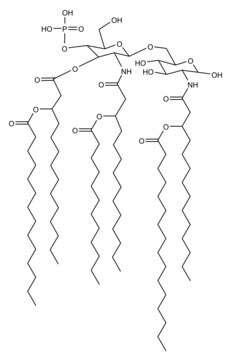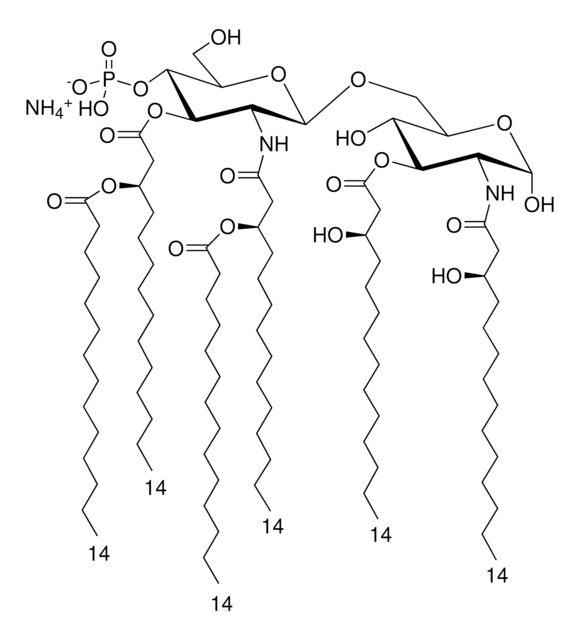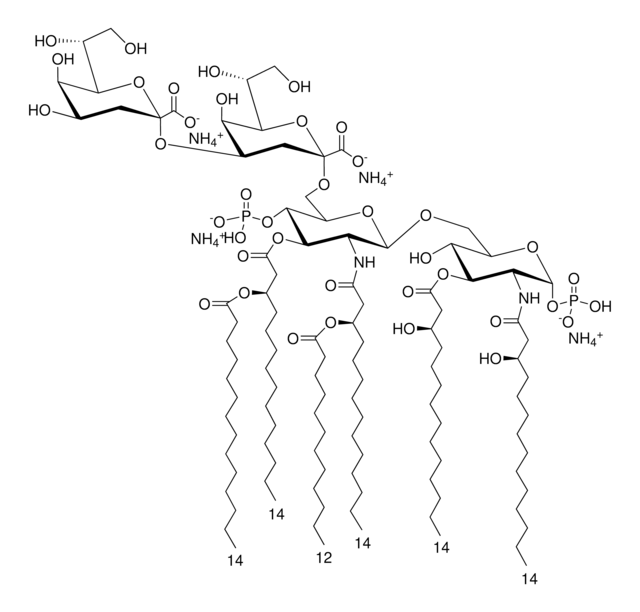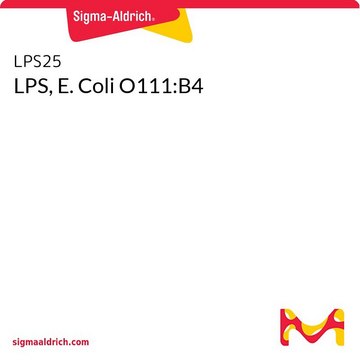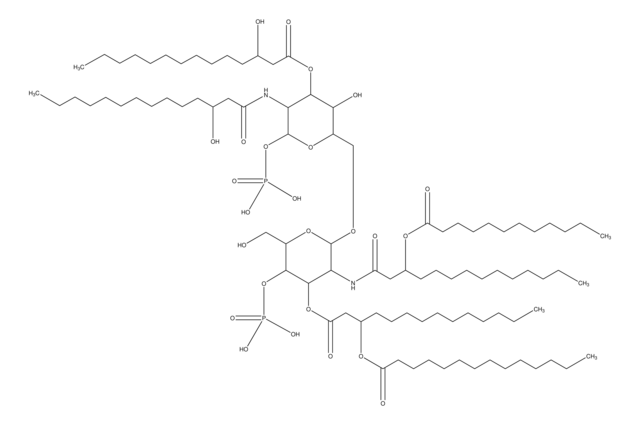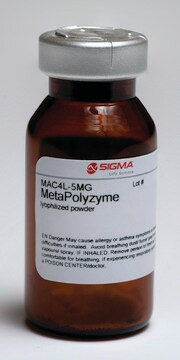SML2430
Kdo2-Lipid A (KLA)
≥90% (HPLC)
Sinónimos:
Di[3-deoxy-D-manno-octulosonyl]-lipid A (ammonium salt), KLA, Kdo2-LipidA
About This Item
Productos recomendados
biological source
Escherichia coli
assay
≥90% (HPLC)
form
solid
storage temp.
−20°C
SMILES string
O=C(O)[C@@]1(O[C@H]2[C@@H](O)C([C@H](O)CO)O[C@](C(O)=O)(OC[C@H]3O[C@@H](OC[C@H]4O[C@H](OP(O)(O)=O)[C@@H](NC(C[C@@H](CCCCCCCCCCC)O)=O)C(OC(C[C@@H](CCCCCCCCCCC)O)=O)[C@H]4O)C(NC(C[C@@H](CCCCCCCCCCC)OC(CCCCCCCCCCC)=O)=O)[C@@H](OC(C[C@@H](CCCCCCCCCCC)OC(CCCCC
Categorías relacionadas
General description
Other Notes
Storage Class
11 - Combustible Solids
wgk_germany
WGK 3
flash_point_f
No data available
flash_point_c
No data available
Elija entre una de las versiones más recientes:
Certificados de análisis (COA)
¿No ve la versión correcta?
Si necesita una versión concreta, puede buscar un certificado específico por el número de lote.
¿Ya tiene este producto?
Encuentre la documentación para los productos que ha comprado recientemente en la Biblioteca de documentos.
Los clientes también vieron
Artículos
An overview of human microbiome research, workflow challenges, sequencing, library production, data analysis, and available microbiome reagents to support your research.
Nuestro equipo de científicos tiene experiencia en todas las áreas de investigación: Ciencias de la vida, Ciencia de los materiales, Síntesis química, Cromatografía, Analítica y muchas otras.
Póngase en contacto con el Servicio técnico
